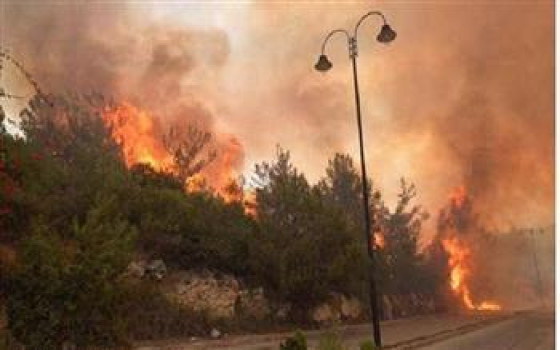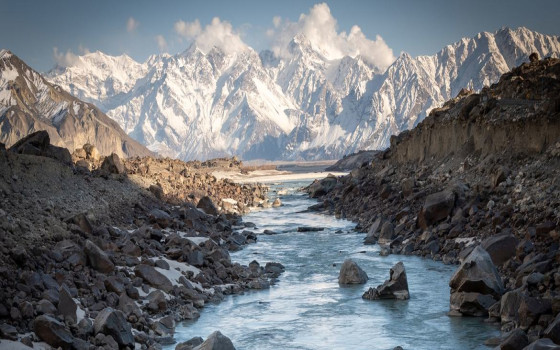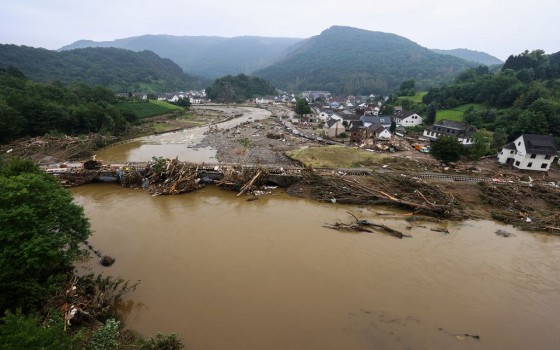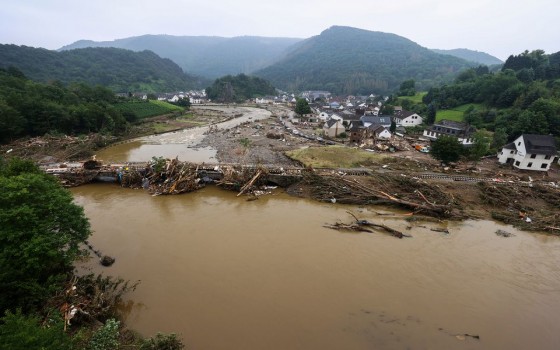UN warns of record-high greenhouse gas levels due to forest fires and increased radiation power

- Europe and Arabs
- Tuesday , 29 October 2024 13:30 PM GMT
New York: Europe and the Arabs
The World Meteorological Organization confirmed that new data it released yesterday, Monday, indicating that greenhouse gases have reached a record high level, shows once again that urgent action is needed, not words from the world's biggest polluters, to protect us all from climate change.
This call comes as world leaders prepare to gather for the United Nations Climate Change Conference in Baku, the capital of Azerbaijan, next month, amid repeated warnings about the human cost of ignoring the existential crisis by the United Nations Secretary-General, Antonio Guterres, and others.
The Deputy Secretary-General of the World Meteorological Organization, Ko Barrett, renewed the UN Secretary-General's appeals to journalists, saying that carbon dioxide - one of the three main greenhouse gases, along with methane and nitrous oxide - is now accumulating in the atmosphere "faster than at any time in human existence."
She added that because carbon dioxide has a very long lifespan in the atmosphere, rising temperatures will have to be dealt with for many years to come. According to the UN daily news bulletin, which we received a copy of this morning, Tuesday.
Barrett's statements came during a review of the 2024 Greenhouse Gas Bulletin issued by the organization on Monday.
The bulletin provides a stark scientific reminder that rising carbon dioxide levels need to slow down. In 2004, the concentration of carbon dioxide in the atmosphere was 377.1 parts per million, while in 2023, this reached 420 parts per million, according to the World Meteorological Organization's Global Atmosphere Monitoring Network.
That’s an increase of 42.9 parts per million, or 11.4 percent, in just 20 years, Barrett explained, adding: “These are more than just statistics. Every part per million matters, every fraction of a degree of temperature increase matters. It matters in terms of the speed at which glaciers and ice are retreating, the acceleration of sea level rise, the warming and acidification of the oceans. It matters in terms of the number of people who will be exposed to extreme heat each year, the extinction of species, the impact on our ecosystems and our economies.”
The role of wildfires
Major greenhouse gas-producing events include wildfires and the El Niño weather phenomenon, which fueled dry conditions and a spike in concentrations of the gas in the latter part of 2023, according to the World Meteorological Organization.
The organization’s analysis shows that just under half of carbon dioxide emissions remain in the atmosphere, just over a quarter is absorbed by the ocean, and just under 30 percent is retained by land.
The organization’s chief science officer, Oksana Tarasova, described last year’s wildfires in Canada as “very dramatic” in terms of the amount of greenhouse gases produced. Tarasova said today’s carbon dioxide levels have not been seen “in human history. The last time we saw 400 parts per million of carbon dioxide was three to five million years ago. During that time, the temperature was three to four degrees higher” and sea levels were 10 to 20 metres higher. The organization’s report noted that from 1990 to 2023, radiative forcing — the warming effect on our climate from greenhouse gases — increased by 51.5 per cent. Carbon dioxide accounts for more than 80 per cent of that increase, according to data from the National Oceanic and Atmospheric Administration’s annual Greenhouse Gas Index. Climate conference expectations
The World Meteorological Organization said that as long as emissions continue, greenhouse gases will continue to accumulate in the atmosphere, leading to a rise in global temperatures.
She stressed that given the very long life of carbon dioxide in the atmosphere, the temperature level already observed will continue for many decades, even if emissions are quickly reduced to zero.
When asked whether the UN Climate Change Conference is expected to result in concrete commitments from countries, the Deputy Secretary-General of the World Meteorological Organization pointed out that politicians around the world are referring to the latest scientific findings and climate predictions in their public statements.
She added: "So I think they are listening, and the question is to what extent we will see that manifested at the climate conference (COP29)".
Barrett stressed that measures taken at the national level to transition to an economy that relies less on fossil fuels are very important to protect future generations.














No Comments Found